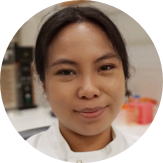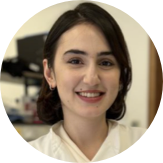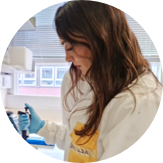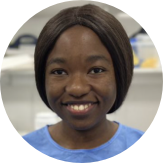Equal Representation in Academia (ERA) is an initiative that aims to raise awareness of academic research careers for students from statistically underrepresented backgrounds and thereby facilitate the academic career path for those wanting to follow this route. ERA is open to undergraduate students from underrepresented backgrounds who are enrolled in any degree programme at the universities listed in the eligibility criteria. ERA is also helping to retain diverse talent, and create an inclusive environment for all in higher education institutions.
2-week work shadowing placements for students who are not in their final year: provide the opportunity to gain a valuable insight into academic research careers. The placements are like a “try before you buy” experience. You will shadow a research group to understand the day-to-day life of members instrumental to the scientific process, including but not limited to postgraduate students, postdoctoral fellows, laboratory technicians, lab principal investigators, and professors. This will give you the opportunity to observe the different careers on offer in research and to develop a research network. You may also be involved in the group’s research practices (e.g., conducting experiments). You will experience academic activities from grant writing to writing manuscripts (in some instances), and you will work personally with a careers advisor to build your CV.
8-week studentships for final year students: provide the opportunity to gain hands on practical research experience. You will be able to design a project with a supervisor of your choosing and write a research proposal. The work you conduct during this studentship will contribute towards research output e.g., a research paper, conference submission and/or internal presentation. This is an opportunity for you to grow your research interest, gain valuable research experience and cultivate your research network.
The initiative is currently open to undergraduate students from *underrepresented backgrounds who study at either City St George’s, Leeds Beckett, or Buckinghamshire New University.
*If you receive a university bursary and/or are registered with the disability service and/or are from an ethnic minority / global majority background, you are eligible to apply.
The placements will take place between June – September 2025. If successful, you will agree on a start date with your supervisor.
You will receive a stipend on par with Wellcome Trust Internships (£250 per week). The host laboratory will also be provided with funding to cover the cost of consumables for your project and/or research output. Please note that this is a very competitive process.
Please complete the e-form below. All submissions will be reviewed for the use of generative AI. As this is a highly competitive process, we encourage you to submit an original and authentic application to maximise your chances of success.
You should only apply for one project. Year If shortlisted, we can discuss if you have any other preferences.
Deadline for e-application: 12-05-25 at 5PM.
Interviews will take place onsite on the following days: 19th May 2025 from 2-5PM, 22nd May 2025 from 2-5PM and 27th May 2025 from 9-1PM.
You will be considered primarily on the basis of the application form, not previous academic performance. As we receive a large number of applications, we advise you to dedicate sufficient time and effort to completing your application form. Tips: Read the instructions carefully, look into the project and related literature, review the aims of the ERA programme, and discuss your motivations for applying to the programme.
Applications will be triple marked. The top 10% will be invited for a short informal interview before the final decision is delivered. At interview, you will deliver a 5 minute presentation on ‘Why is this initiative important to you, and how can you apply this experience in the future?’. You may use slides if you wish to.
If you require more information about a project on the list, please feel free to use the contact function below and/or contact the supervisor directly.
Host: City St George’s University of London (Tooting campus)
Length: Two-week internship
Primary supervisor: Dr Audrey Teh
Constantinou SM & Bennett DC (2024). Cell senescence and the genetics of melanoma development. Genes Chromos. Cancer 63, e23273. https://doi.org/10.1002/gcc.23273
Soo JK, JT Castle & DC Bennett (2023). Preferential killing of melanoma cells by a p16-related peptide. Biol. Open, 12(8): bio059965. https://doi.org/10.1242/bio.059965
Typically, diagnosis and phenotyping of lymphoedema is achieved through clinical examination and family history, but this is limited. Our group has been very successful in discovering causal genes for lymphoedema and the impact of identified mutations (genetic loss of function) in causal genes, by looking at the growth and interactions between cells and proteins, as well as looking at macroscopic features of the people who exhibit these alterations with medical imaging techniques such as MRI and lymphoscintigraphy.
What this placement involves
During the two-week placement, students will get to observe and engage with various aspects of the lymphatic research team’s work. The exact set of experiments to be performed and sessions to observe will be determined closer to the placement commencing but are expected to include:
Using cellular models of TB-induced lung damage, we have identified an enzyme called PDE4 that may drive scar tissue formation. However, it is unknown the expression level of this enzyme in patients with TB. This ERA studentship will be as hands-on as possible, so you will be able to conduct lab techniques (e.g. immunohistochemistry and microscopy) to investigate whether patients with TB have PDE4 in their diseased tissue. Findings from this project may inform us whether targeting PDE4 represents a new treatment option for patients with TB.
The high price and low availability of the licensed HAV vaccines are due to the type of vaccine, inactivated virus, that relies on virus growth and chemical inactivation, which are overall slow with poor yields, lengthy and costly. Therefore, our new vaccine uses recombinant DNA technology to generate virus-like particles (VLPs) that possess identical antigenicity as the virus, but dispense of viral infection for their manufacturing. This technology is similar to the recently licenced Gardasil and Cervarix that are already making papilloma virus elimination a possibility.
As proof of principle, we have generated HAV VLPs using a mammalian cells expression system and confirmed their potential as vaccine candidate by analysing their physical and antigenic features. Although mammalian cells are the natural host of the virus and guaranteed native HAV protein expression and assembly, they are not widely used for vaccines manufacturing. Therefore, now, this project aims to investigate the expression of HAV VLPs in insect cells, which are more amenable for vaccine manufacturing at large-scale and low-cost.
Techniques involved: cell culture of insect and mammalian cell lines, DNA transfection, SDS-PAGE; Western Blotting; ELISA; VLP purification
During this placement, the student will:
Join the research team and engage in discussions with current lab members, including a PhD student (based overseas) to gain perspective on international research collaboration, and a postdoctoral researcher (PDRA) who will share insights on a research career.
Attend a departmental seminar and lab meeting as an observer to experience the academic research environment.
Undertake a mini-project, involving cell culture, protein extraction, and Western blotting, gaining valuable hands-on experience in experimental techniques.

Diyana Anthony

Giulia Kengne Fotso

Lakshmi Pathmanathan

Lien Salcedo

Somto Muoneke

Rahil Isar

Ruchi Wadhwa

Gresilda Asllani

Samia Tajbiha

Sabrin Mohamed

Javeria Nishtar

Rutendo Makuve

Ilyas Moosavi

Maya Caan